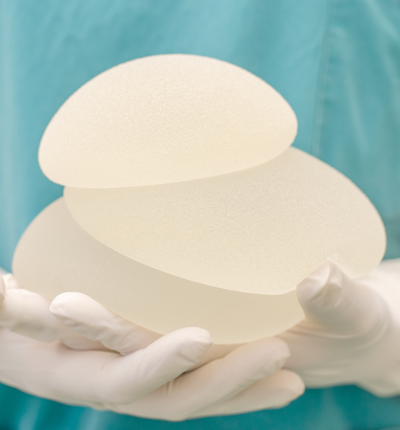
Lawyer for women with breast implant-related cancer calls for complete UK ban on textured implants
Textured breast implants that have been linked to a rare cancer known as breast implant associated anaplastic large cell lymphoma (BIA-ALCL) should be banned in the UK, a product safety solicitor has argued.
Posted on 09 January 2020
Zahra Nanji, who is representing a group of women diagnosed with BIA-ALCL, told the Guardian that she believes the UK should ban all textured implants and that there needs to be far better regulation of the cosmetic surgery industry.
The Guardian reported that at least 61 women in the UK have been diagnosed with the potentially fatal cancer linked to breast implants. In Australia and France textured breast implants have been withdrawn from the market, but the UK regulator had not followed suit. The UK ranks third highest in the world for ALCL cases, behind Australia and France.
Leigh Day have been approached by 40 women to date, all of whom have the ALCL diagnosis.
The leading manufacturer of textured implants, Allergan, has withdrawn their product from worldwide sale. However, in the UK, other brands of textured implants are still in use.
The Guardian reported that neither NHS England, the NHS Business Services Authority nor the MHRA could say how many textured breast implants had been given to women in the NHS after a mastectomy for breast cancer.
The UK regulator, the Medicines and Healthcare products Regulatory Agency (MHRA), told the Guardian it is taking an evidence-based approach and said cases of cancer linked to textured breast implants are very rare.
The MHRA told The Guardian:
“Based on our analysis of the latest scientific evidence and expert clinical input, our advice remains unchanged: there is no new evidence of an increased risk to patients and there is no need for people with breast implants to have them removed in the absence of any symptoms.”
Zahra Nanji, solicitor in the consumer law and product safety team at Leigh Day, said:
“My worry is that, by their own admission, the MHRA don’t have the quality or quantity of evidence to really make a proper assessment of the risks to patients: until 2016 there was no functional registry in the UK recording this data, and so the MHRA cannot track through the connection between certain types of implant and emerging risks.
“We believe it has become very difficult to justify the MHRA’s current position on textured implants; particularly when countries like Australia, that do have properly functioning registries in place, have recognised that all textured implants are a potential cause of BIA-ALCL and they have followed that through by suspending all textured implants from the market.
“There are sad and alarming stories and there is anger and dismay that those implanted, some post mastectomy, did not know that their implants carried this rare but serious health risk.
“There is now greater patient awareness and as a result, I think women are pushing for diagnosis. Now is the time for the MHRA to catch-up with countries with functioning implant registries and take more robust action to safeguard all those in the UK who already have or are planning implantation with textured breast implants.”
BIA-ALCL causes fluid to build up around the breast and can cause lumps, swelling and pain. Caught early, it can be easily treated by removal of the implant and the scar tissue around it. If it is not, it may spread. Women are advised to be proactive in terms of checking themselves and if they do have any symptoms associated with BIA-ALCL to seek medical advice about implants and the risk of developing the cancer.


